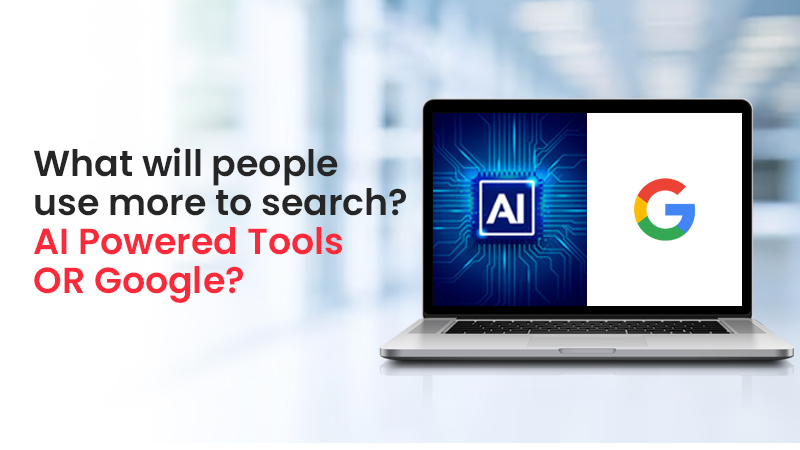In the realm of information retrieval, Google has long held the reins as the dominant player, empowering users to navigate the vast digital landscape with ease. However, the advent of AI-powered tools is challenging this status quo, raising the question: will people increasingly turn to AI-powered alternatives for their search needs, leaving traditional search engines like Google behind?
AI-Powered Tools: A Paradigm Shift in Search
AI-powered search tools offer a fundamentally different approach to information discovery. Unlike traditional search engines that rely on keyword matching and ranking algorithms, AI-powered tools leverage natural language processing (NLP) and machine learning (ML) to understand user intent and context. This enables them to provide more personalized and relevant search results, tailored to the specific needs and interests of each user.
While AI has revolutionized the way we search for information, it also presents several pitfalls that users should be aware of:
- Bias and Discrimination: AI algorithms can perpetuate and amplify existing biases in the data they are trained on, leading to discriminatory search results. For instance, an AI-powered search tool might consistently provide lower-quality results for certain demographic groups or unfairly prioritize certain types of content.
- Lack of Transparency and Explainability: AI search algorithms often operate as “black boxes,” making it difficult to understand how they arrive at their results. This lack of transparency can raise concerns about fairness and accountability, particularly when sensitive information or personal data is involved.
- Limited Understanding of Context and Nuance: AI algorithms excel at processing large amounts of data and identifying patterns, but they often struggle to grasp context, nuance, and the subtleties of human language. This can lead to misinterpretations and inaccuracies in search results, especially when dealing with complex or abstract topics.
- Susceptibility to Manipulation and Misinformation: AI-powered search tools can be easily manipulated to promote biased or misleading information. This vulnerability is particularly concerning in the context of online propaganda and the spread of misinformation.
- Echo Chambers and Filter Bubbles: AI algorithms can inadvertently create echo chambers by reinforcing existing beliefs and filtering out opposing viewpoints. This can lead to polarization and hinder exposure to diverse perspectives.
- Limited Ability to Handle Unstructured Data: AI algorithms are primarily designed to process structured data, such as text and numerical information. They often struggle with unstructured data, such as images, videos, and audio, which can limit their ability to provide comprehensive search results.
Google’s Response: Embracing AI for Enhanced Search
Google, recognizing the potential of AI, has been actively incorporating AI into its search engine, utilizing AI-powered features to enhance user experience and improve search results. For instance, Google’s Knowledge Graph leverages AI to provide structured information and insights related to entities like people, places, and events. Additionally, Google’s AI-powered search algorithms can identify and prioritize relevant content based on user intent, even when keywords are not directly present in search queries.
| Feature | AI Search Algorithms | Google Search Algorithm |
| Primary approach | Machine Learning (ML) and Natural Language Processing (NLP) | Keyword matching, PageRank, content analysis, user signals |
| Strengths | Contextual understanding, personalization, complex query handling | Scalability, vast dataset, diverse ranking factors |
| Limitations | Requires training data and continuous improvement | Relies on keyword matching and backlinks, may miss nuances in user intent |
The Future of Search: A Hybrid Landscape
Predicting the future of search is a complex endeavor, as technological advancements and user preferences are constantly evolving. However, it is evident that AI will continue to play an increasingly prominent role in shaping the search landscape. AI-powered tools, with their ability to provide personalized and contextual search results, offer a compelling alternative to traditional search engines.
Despite the rise of AI-powered tools, it is unlikely that traditional search engines like Google will disappear entirely. Google’s vast index of websites, its established brand recognition, and its continuous integration of AI into its search algorithms will ensure its continued relevance.
Instead, the future of search is likely to be a hybrid landscape, where AI-powered tools and traditional search engines coexist, each catering to specific user needs and preferences. AI-powered tools may excel in providing personalized and contextual search results, while traditional search engines may remain the go-to for comprehensive and broad-based searches.
User Choice: The Ultimate Determinant
Ultimately, the choice of whether to use AI-powered tools or traditional search engines will rest with the individual user. Factors such as familiarity, comfort level with technology, and specific search needs will influence user preferences.
For those seeking personalized and contextual search results, AI-powered tools offer a compelling alternative. However, for users who prefer a broader and more comprehensive search experience, traditional search engines like Google may remain the preferred choice.
Conclusion: A Dynamic and Evolving Search Ecosystem
The future of search is dynamic and ever-evolving, with AI playing an increasingly significant role. While AI-powered tools offer a personalized and contextual search experience, traditional search engines like Google maintain their relevance due to their vast index of websites and established brand recognition.
The choice between AI-powered tools and traditional search engines will ultimately lie with the individual user, based on their specific needs and preferences. As AI continues to develop and integrate with traditional search technologies, the search ecosystem is poised for further innovation and transformation.







